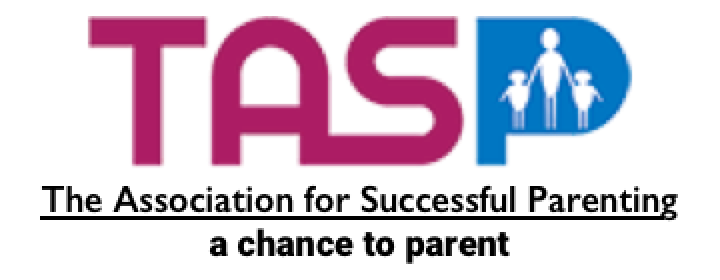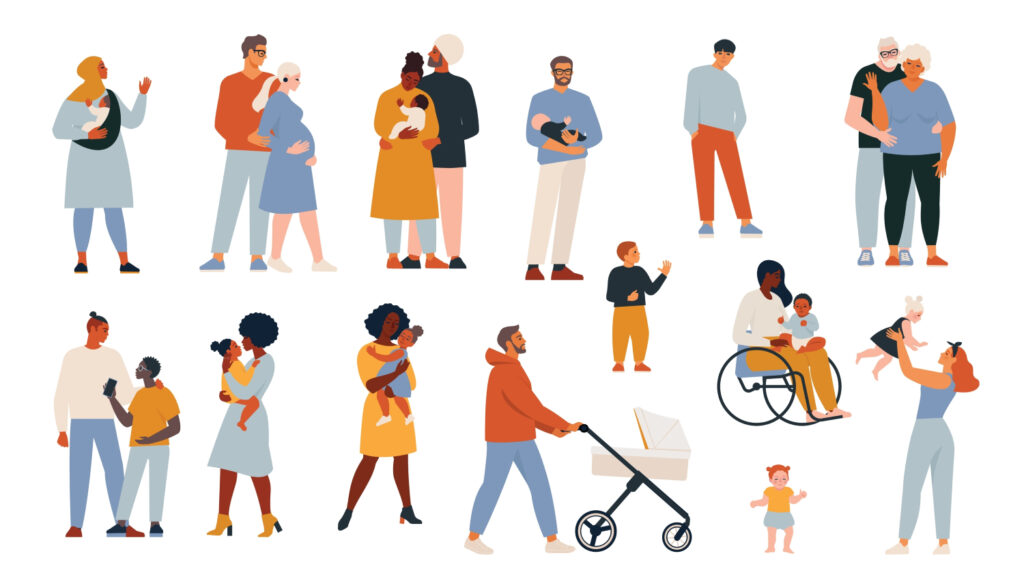January 2, 2024
Breaking Stereotypes: Debunking Myths about Parenting with Intellectual Disabilities
Written By Ivanova Smith, Quiana Mayo, Jamie Junior, Lindsay Brillhart and Chelsea Tighe
Parenthood is a journey filled with joy, challenges, and love. Individuals with intellectual disabilities often find themselves battling against societal misconceptions that cast doubts on their abilities as parents. In this blog post, we will address and dispel common myths surrounding parenting with intellectual disabilities, featuring the voices of resilient parents with disabilities who navigate parenthood with strength, determination, and undeniable love.
Myth 1: People with disabilities cannot parent.
“I can parent, I can parent with help like many other parents. “ – Lindsay
Lindsay challenges the prevailing myth that individuals with disabilities cannot be effective parents. She proudly asserts her capability to parent, emphasizing that like any other parent, she may need support – a universal truth in the parenting journey. Lindsay’s story illustrates the importance of acknowledging the diverse ways individuals can successfully navigate parenthood, irrespective of their abilities.
Fact: Contrary to this myth, countless parents with disabilities navigate the complexities of parenthood successfully. Numerous studies and personal stories attest to the diverse ways individuals with disabilities can provide a loving and nurturing environment for their children. It’s crucial to recognize that parenting abilities are not determined by physical or intellectual abilities but by the commitment, care, and support parents provide to their children.
Myth 2: Needing help is a weakness. You can’t do it because you need help.
“Interdependence is a strength, not a weakness. It’s the way of the world.” – Jamie
Jamie brings attention to the misconception that needing help is a sign of weakness. She reframes this narrative, highlighting the strength found in interdependence. Parenting, like life, often involves collaboration and mutual support. Jamie challenges the stigma associated with seeking assistance and promotes a more inclusive perspective that recognizes the strength found in shared responsibilities.
Fact: Parenting is a shared journey, and seeking assistance is not a sign of weakness but a testament to strength. All parents, regardless of ability, benefit from support networks, whether it’s from family, friends, or community resources. Interdependence is a powerful force that enhances the overall well-being of families. Embracing the idea that everyone, with or without a disability, can thrive with a supportive community challenges the misconception that needing help diminishes one’s capabilities as a parent.
Myth 3: Parents with disabilities are always going to be dependent on social services systems.
“I believe people that don’t have IDD need social supports. Lots of people utilize social supports.” –Quiana
Quiana dispels the myth that parents with intellectual disabilities are perpetually dependent on social service systems. They emphasize that the need for social support is not exclusive to individuals with intellectual and developmental disabilities (IDD). Her insight sheds light on the universal nature of relying on community and social networks in the journey of parenthood.
Fact: The assumption that parents with disabilities are perpetually reliant on social services systems is a misrepresentation of their reality. Many parents with disabilities successfully navigate parenthood without being dependent on these systems. Just like any other parent, individuals with disabilities draw on a variety of resources, including community support, personal networks, and their own resilience. Parenting success is not determined solely by the presence or absence of a disability but by the strength of the support systems in place.
Myth 4: You have a disability; you cannot be the parent.
“I know for me I have issues with people not believing I was the parent… because I rock that they think I’m not the parent.” – Ivanova
Ivanova confronts the assumption that disability negates the possibility of being a parent. Sharing personal experiences of public skepticism, they shed light on the misconceptions that surround parenthood with a disability. The story challenges stereotypes and highlights the importance of recognizing diverse forms of parenting.
Fact: Having a disability does not diminish one’s ability to be a loving and capable parent. Countless parents with disabilities excel in their roles, providing love, care, and guidance to their children. Dismissing someone’s parenting abilities based on their disability perpetuates harmful stereotypes. It’s essential to challenge these assumptions and recognize that parenting is a diverse journey where individuals of all abilities can and do thrive.
Conclusion
Dispelling these myths is crucial for fostering inclusivity and breaking down barriers faced by parents with disabilities. By acknowledging the facts and celebrating the diversity of parenting experiences, we contribute to a more understanding and supportive society where every parent is recognized for their unique strengths.
Reference List
- Jones, A. (2019). “Parenting with Disabilities: Navigating Challenges and Celebrating Success.” Journal of Inclusive Parenthood, 25(2), 45-62.
- Smith, B., & Rodriguez, M. (2020). “Breaking Barriers: A Study on the Parenting Experiences of Individuals with Disabilities.” Disability Studies Journal, 15(3), 112-130.
- National Organization on Disability. (2021). “Parenting Abilities: A Comprehensive Review of Studies on Parents with Disabilities.”

